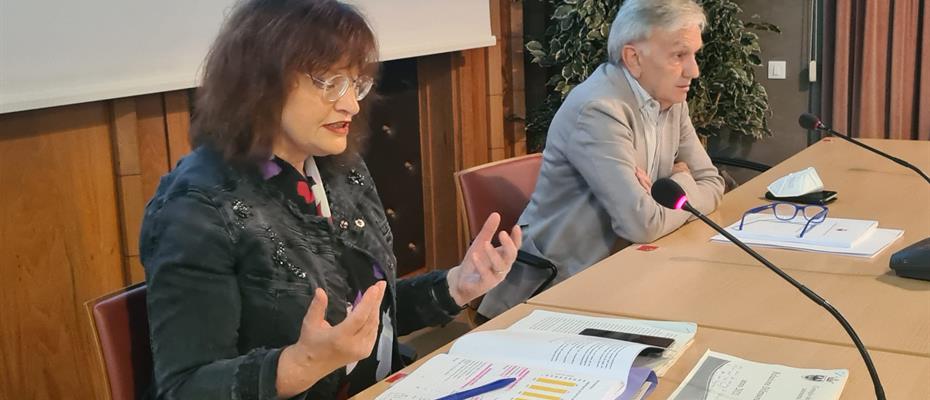Date of article: 04/07/2022
Daily News of: 06/07/2022
Country:  Italy
- Autonomous Province of Trento
Italy
- Autonomous Province of Trento
Author:
Article language: it
La relazione annuale presentata alla stampa da Gianna Morandi
In allegato, le slide e la relazione sull'attività del 2021. Nella foto, Morandi e Kaswalder

Un totale di 532 fascicoli aperti, 475 archiviati e 711 comunicazioni fornite ai cittadini. Questi i numeri essenziali dell’attività 2021 del Difensore civico che sono stati presentati questa mattina dall’avvocatessa Gianna Morandi in una conferenza stampa alla quale ha preso parte anche un folto numero di consiglieri provinciali e per la Giunta, il vicepresidente Mario Tonina. Attività 2021, ha ricordato Morandi, sulla quale ha pesato l’epidemia Covid, nel senso che numerosi sono state le richieste di cittadini di avere informazioni sui decreti del Governo in materia di epidemia, in particolar modo sulla legittimità costituzionale del Green pass o della sospensione dal lavoro del personale sanitario non vaccinato. Materia, questa del contenimento della pandemia che, come ha confermato la sentenza numero 37 della Consulta, è competenza esclusiva dello Stato. Ma ciò non ha impedito all’avvocatessa Morandi e al suo ufficio di fornire ai cittadini informazioni dettagliate e scritte.
Il Difensore civico, parlando di sanità, ha toccato il tema del Garante del diritto alla salute, figura prevista dalla legge statale Gelli – Bianco del 2017 e che è stata istituita in Toscana. Figura, ha ribadito Morandi, che per essere operativa nei casi di malpractice medica deve avere un supporto tecnico. Un’alternativa potrebbe essere l’attivazione della Camera conciliativa, prevista nella legislazione provinciale, ma che, come ha ricordato rispondendo a una domanda del consigliere Marini, non è attiva perché priva del regolamento che deve essere varato dalla Giunta.
Altro tema affrontato dal Difensore civico è stato quello dell’accesso agli atti. I casi di ricorso di cittadini alla difesa civica contro il diniego o il differimento di accessi agli atti da parte di enti pubblici sono stati 16: in 11 casi è stata rilevata l’illegittimità del no; in 4 la sua legittimità e un caso è stato dichiarato inammissibile. Poi ci sono state 39 richieste (sei da parte di consiglieri comunali) di intervento del Difensore civico di carattere generale sempre in materia di accesso agli atti. In 23 casi sono state fornite informazioni ai cittadini, 10 hanno avuto esito favorevole, 1 negativo e 5 sono in corso.
L’avvocatessa Morandi ha tenuto a sottolineare che la difesa civica ha dimostrato di essere, anche attraverso la crescita dei casi e delle richieste d’intervento, un’alternativa al ricorso alla giustizia ordinaria anche in termini della flessibilità della risposta che spazia su un gran numero di materie dalle questioni amministrative alla tutela della parità di genere negli enti pubblici.
Il presidente del Consiglio Walter Kaswalder ha ringraziato, con il consigliere Piero De Godenz, il Difesore civico e il suo ufficio per l’impegno e, in apertura della conferenza stampa, ha chiesto un minuto di silenzio in memoria delle vittime della tragedia della Marmolada.
Autore
Bruno Zorzi
Allegati
La realazione sull'attività del Difensore civico nel 2021
PDF
 Serbia
Serbia



